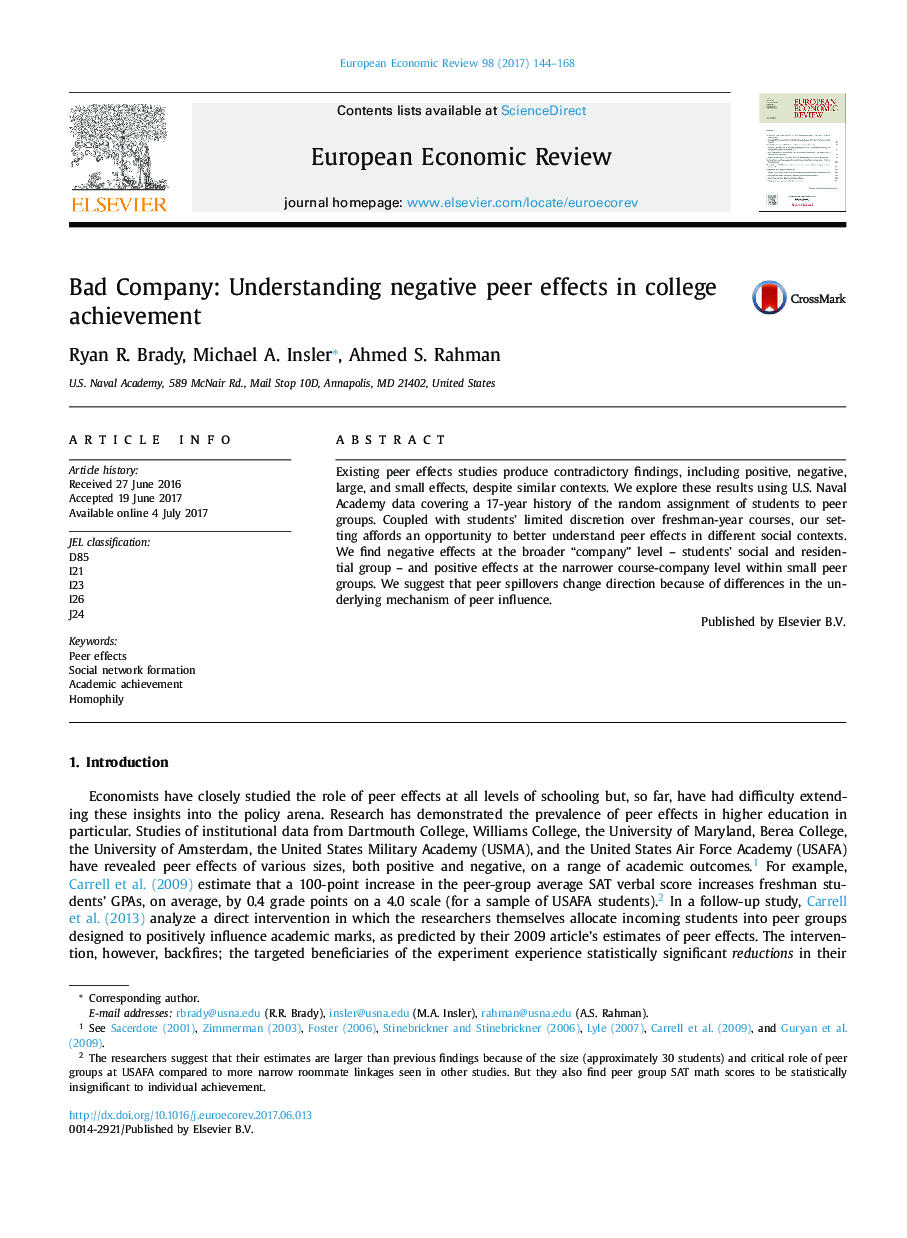| Article ID | Journal | Published Year | Pages | File Type |
|---|---|---|---|---|
| 5066277 | European Economic Review | 2017 | 25 Pages |
Abstract
Existing peer effects studies produce contradictory findings, including positive, negative, large, and small effects, despite similar contexts. We explore these results using U.S. Naval Academy data covering a 17-year history of the random assignment of students to peer groups. Coupled with students' limited discretion over freshman-year courses, our setting affords an opportunity to better understand peer effects in different social contexts. We find negative effects at the broader “company” level - students' social and residential group - and positive effects at the narrower course-company level within small peer groups. We suggest that peer spillovers change direction because of differences in the underlying mechanism of peer influence.
Related Topics
Social Sciences and Humanities
Economics, Econometrics and Finance
Economics and Econometrics
Authors
Ryan R. Brady, Michael A. Insler, Ahmed S. Rahman,
